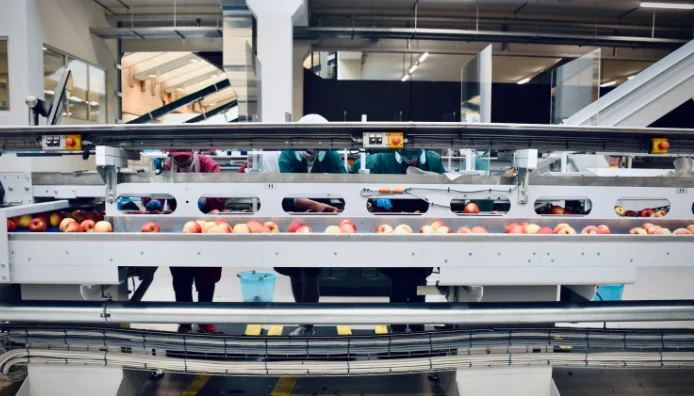The food industry operates within a complex and dynamic environment where supply chain efficiency is crucial for success. From ensuring timely deliveries of perishable goods to minimizing waste and optimizing costs, the efficiency of the supply chain plays a significant role in determining the profitability and sustainability of food businesses.
Here we have come up with the top 6 techniques to enhance supply chain efficiency in the food industry so that you can keep your chin up and flourish in the competitive world of food business. Let’s get the ball rolling.
Using data analytics
Data analytics is one of the powerful technologically advanced field that can transform the efficiency of your supply chain. Using data analytics in the form of restaurant database tools can help you gain valuable insights and then form your strategies accordingly.
For instance – You are someone who makes a special burger sauce that end customers really love. Now, you want to know the restaurants in your area that provide that special sauce to their customers. What will you do with this information? You can directly contact those restaurants and crack a profitable deal. And how can you obtain this information? Through data analytics tools. So, achieve greater efficiency in the supply chain with this powerful technological innovation.
Monitor KPIs
Key performance indicators in food businesses include inventory turnover and order accuracy, along with a few others. Keeping track of these insights can help you identify the problems that need to be addressed.
You can make informed decisions by tracking KPIs. For instance – If you have found some issues with the order accuracy, you can think about the reasons why it is happening. This could be due to a lack of communication between you and the restaurants during the ordering process. You can then take steps to improve the communication process, thereby driving long-term efficiency.
Budget management
Effective budget management is the foundation of supply chain efficiency. You need to carefully track and control your expenses to optimize your business resources and reduce waste. It demands robust financial planning and restaurant database tools to allow you to have greater visibility into your current spending habits and issues.
One practical approach to budget management is a zero-based budgeting strategy. Justify your expenses for each new period. The justification should sound appropriate and acceptable to you. This method helps you cut down on unnecessary expenditures and examine all the costs. Also, find ways to negotiate contracts with the restaurants you are supplying to. This further adds stability to your budget.
Sustainable Practices
Sustainability has now become the roar of the food industry. Many people are opting for sustainable practices. And not just people but restaurants are also paying attention to this aspect. The ethical and environmental reasons also play a role in going sustainable. Opting sustainable practices not just improves your brand reputation but can also result in significant cost savings.
One way you can do this is by adopting eco-friendly packaging. Using recyclable or biodegradable material for packaging reduces carbon footprint. Also, you can optimize the transportation routes to minimize fuel consumption and improve delivery times. All in all, adding sustainability to your food venture can give a push to the success of your supply chain and, ultimately, your business.
Foster strong relationships with the restaurants you are supplying to
Strong relationships with the restaurants you are supplying to forms the backbone of an efficient supply chain. You have to be transparent and clear in the communication with the food businesses you are supplying your services to. It ensures better coordination and understanding of mutual problems. By understanding what your restaurant wants from you, you can provide them with tailored solutions and hence establish better relationship with them.
Regularly schedule meetings with your restaurants to find out if there are any changes in their demand. Seek feedback from them to get valuable insights into how you can make improvement to your services. It fosters a culture of continuous improvement.
Optimize inventory management
Supply chain management can’t go without optimizing the inventory levels. When you supply right products at the right time to the restaurants, it keeps the risk of overstocking and stockouts at bay. What you need to do for this is to implement an inventory tracking system and maintain a regular audit of stock levels.
Conduct periodic checks to identify any discrepancy at the earliest. Optimizing inventory levels lets your business to not only enhance supply chain efficiency but also reduce operational cost.
To make a long story short
Enhancing supply chain efficiency in the food industry is a multifaceted challenge that requires a strategic approach and continuous improvement. The above-mentioned proven techniques not only enhance the supply chain efficiency but also support the overall success and sustainability of food industry enterprises. So, make your food business the talk of the town by incorporating these techniques and let it bloom.

Melody Roth, a seasoned blog writer with a passion for the delectable world of food, specializes in crafting mouth-watering articles on favorites like pizza and burgers. With years of experience under her belt, Melody serves up stories as tantalizing as the dishes she describes, making her an invaluable voice in the culinary blogging realm.

